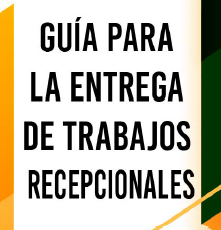Mostrar el registro sencillo del ítem
Vocabulary games as a motivating technique for teaching children in an EFL context.
| dc.contributor.author | BALLOTE CAMBRONY, ESTEFANY ARACELY | |
| dc.contributor.author | ESPARZA MAGAÑA, ANA MARIA | |
| dc.date.accessioned | 2018-06-13T18:26:45Z | |
| dc.date.available | 2018-06-13T18:26:45Z | |
| dc.date.issued | 2009 | |
| dc.identifier.uri | http://hdl.handle.net/20.500.12249/1120 | |
| dc.description.abstract | This study aims to look into the effects of teaching English through games in terms of motivation and lexical improvement in comparíson with the teaching of vocabulary via conventional techniques applied by the researchers. The participants were two different groups from a public eiernentary school for experimental purposes. Each group received five sessions consisting of two treatments (vocabulary games vs. conventional techniques). The first group, the fifth graders, received instruction through games and the second one. the sixth graders, was taught by using other vocabulary teaching techniques. The instruments used in this quasi-experiment were (1) a pre test which was applied before the application of the activities to find out learner's vocabulary size; (2) a questionnaire applied at the end of every session to gather learners' motivational reactions; (3) a series of observations done during all activities applied in both groups; and (4) a post test applied at the end of the five sessions to measure the expected differences. The results showed that the group receiving instruction via vocabulary games outperformed the vocabulary-teaching techniques group of learners. Also importantly, the former showed a higher degree of motivation to Iearn vocabulary than the latter. Interestingly, the group receiving conventional instruction also improved in both aspects, though to a lesser extent than the vocabulary-games group. All in all, the findings may have severa) pedagogical implications, but further research is required. | |
| dc.description.provenance | Submitted by Yaremi Isabel Can Chulin (1315421@uqroo.mx) on 2018-06-12T20:02:29Z No. of bitstreams: 1 PE1128.B34.2009-59629.pdf: 7281612 bytes, checksum: a51c59ddf443746ee0e39e884da97ae3 (MD5) | |
| dc.description.provenance | Approved for entry into archive by Yeni Martin Cahum (yenimartin@uqroo.edu.mx) on 2018-06-13T18:26:45Z (GMT) No. of bitstreams: 1 PE1128.B34.2009-59629.pdf: 7281612 bytes, checksum: a51c59ddf443746ee0e39e884da97ae3 (MD5) | |
| dc.description.provenance | Made available in DSpace on 2018-06-13T18:26:45Z (GMT). No. of bitstreams: 1 PE1128.B34.2009-59629.pdf: 7281612 bytes, checksum: a51c59ddf443746ee0e39e884da97ae3 (MD5) Previous issue date: 2009 | |
| dc.format | ||
| dc.language.iso | eng | |
| dc.publisher | Universidad de Quintana Roo | |
| dc.rights.uri | http://creativecommons.org/licenses/by-nc-nd/4.0 | |
| dc.subject | Inglés -- Estudio y enseñanza | |
| dc.subject | Inglés -- Vocabulario | |
| dc.subject.classification | HUMANIDADES Y CIENCIAS DE LA CONDUCTA::LINGÜÍSTICA | |
| dc.subject.lcc | PE1128 | |
| dc.title | Vocabulary games as a motivating technique for teaching children in an EFL context. | |
| dc.type | Tesis de licenciatura | |
| dc.description.enky | 1462 | |
| dc.rights.acces | openAccess | |
| dc.identificator | 4||57 | |
| dc.audience | generalPublic | |
| dc.division | Biblioteca Unidad Académica Chetumal, Santiago Pacheco Cruz |
Ficheros en el ítem
Este ítem aparece en la(s) siguiente(s) colección(ones)
-
Licenciatura [2487]






